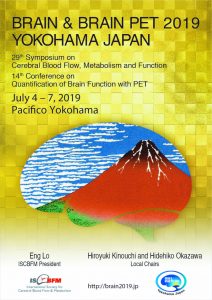Category: Manifestations scientifiques
14e journée annuelle du Club de Neuroprotection
Cette journée sera consacrée à la Neuro-réparation, Neuro restauration, avec des interventions d’actualité et de haut niveau, et à quelques…
FENS Regional Meeting 2019, Belgrade – Call for Symposia
CALL FOR SYMPOSIA by September 1st, 2018 The Serbian Neuroscience Society, National Neuroscience Society of Romania and Neuroscience Society of…
1st annual meeting – At the frontiers of neuroscience and psychiatry meeting
Registration is free but mandatory. Places are limited to 200, so register now here to make sure you don’t miss…
Communicating Animal Research: Challenges and Opportunities
Dans le cadre du Forum FENS 2018, le FENS Committee on Animals in Research (CARE) et la European Animal Research…
Viral Manipulation on Monkeys conference
Applying all the recent rodents opto and chemogenetics advances to primates holds great promises for neurophysiology, behavior and preclinic…
Le Congrès du Sommeil
Avec le parrainage de la Société des Neurosciences La Société Française de Recherche et Médecine du Sommeil et la Société…
École Thématique CNRS
Les canaux et transporteurs ioniques du fondamental à l’appliqué : approches méthodologiques et concepts émergents Cette école, ouverte à tous,…
The cognitive thalamus
Neurex meeting Organizers: Jean-Christophe Cassel & Anne Pereira de Vasconcelos (LNCA, Strasbourg) The thalamus – the largest diencephalic structure with…

CONGRESS BRAIN & BRAIN PET 2019
On behalf of the ISCBFM President and the Local Organizing Committee, we invite the members of the French Neuroscience Society…
Ethique et neurosciences – L’interface homme-machine
En partenariat avec la Société des Neurosciences Les enjeux des recherches en neurosciences sont de 2 ordres, étroitement liés. Il…
